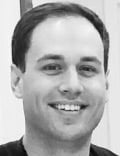The average physician makes $352,000, and some earn well into the $500,000s. So, doctors don't have to worry about money, right?
You know the answer to that.

Dr James Dahle
One thing all physicians have in common about money, says James M. Dahle, MD, FACEP, founder of The White Coat Investor, is that they don't receive any training in business, personal finance, or investing throughout their schooling or careers unless they seek it out. This leaves many unprepared to make the best investing and money-saving decisions, while others get too frustrated about their lack of knowledge to even dip their toe into the investing pool.
Exhibit A: Four out of 10 physicians have a net worth below $1 million, according to the Medscape Physician Wealth & Debt Report 2023. Elizabeth Chiang, MD, PhD, an oculoplastic surgeon and a physician money coach at Grow Your Wealthy Mindset, notes that many of those doctors are over age 65, "which means they essentially can't retire."
And that's just one pain point.

Dr Elizabeth Chiang
Physicians have money concerns specific to their profession and background. Luckily, some fellow doctors also serve as financial and wealth advisors just for other doctors. We sought out a few to get their advice ― and fixes ― for common physician blind spots.
Blind Spot #1
The early lean years skew doctors' money outlook. "We have an extended training period, which commonly consists of taking on a large amount of debt, followed by 3 to 8 years of being paid a modest salary, and then finally a large boost in income," explains Chiang. This can lay a shaky foundation for the earning years to come, and as a result, a lot of doctors just don't think about money in healthy ways. Once their incomes increase, physicians may be surprised, for example, that making a multiple six-figure salary means paying six figures in taxes.
The Fix
Treat financial health like physical health. That means money cannot be a taboo subject. "The misguided mindset is that we didn't become physicians to make money, we did it to help people," explains Jordan Frey, MD, creator of the blog, The Prudent Plastic Surgeon.

Dr Jordan Frey
Frey acknowledges that the desire to help is certainly true. But the result is a false idea that "to think about our personal finances makes us a worse doctor."
Blind Spot #2
Because doctors know a lot about one thing (medicine), they might assume they know a lot about everything (such as investing). "Totally different fields with a different language and different way to think about it," Dahle explains. This overconfidence could lead to some negligent or risky financial decisions.
The Fix
Educate yourself. There are several books on personal finance and investing written by physicians for physicians. Chiang recommends The Physician Philosopher's Guide to Personal Finance, by James Turner, MD; Financial Freedom Rx, by Chirag Shah, MD, and Jayanth Sridhar, MD; and The Physician's Guide to Finance, by Nicholas Christian and Amanda Christian, MD. There are also podcasts, blogs, and courses to help educate doctors on finance, such as the Fire Your Financial Advisor course by The White Coat Investor.
Blind Spot #3
Undersaving. Retirement saving is one thing, but 24% of doctors say they don't even put money away in a taxable savings account, according to the Wealth & Debt Report.

Dr Cobin Soelberg
Cobin Soelberg, MD, JD, a board-certified anesthesiologist and founder and principal advisor with Greeley Wealth Management, is the treasurer of his anesthesiology group. "I get to see every month how much people are saving, and even on an anesthesiologist salary, where everyone's making about $400,000 a year, a lot of people are not saving anything, which is crazy."
Undersaving can be both a time issue and a mindset one.
Time: Doctors often start investing in their retirement accounts later than the average professional, says Chiang. "A lot of physicians will max out their 401k or 403b," she explains. "But if you're putting in $20,000 a year and only starting when you're in your early 30s, that's not enough to get you to retirement."
Mindset: Doctors also see people of all ages who are sick, dying, and injured. "They all know someone who worked hard and saved and then dropped dead at 55," explains Dahle. This, he says, can lead to a bit of a "you only live once" attitude that prioritizes spending over saving.
The Fix
Shoot for 20%. If you can't save 20% of your gross now, strive to get to that point. Think of it as telling a patient they have to change their behavior or trouble will come ― not if, but when. "Develop a written investing plan and then stick with it through thick and thin," says Dahle. "Once you have a reasonable plan, all you have to do is fund it adequately by saving 20% of your gross income, and a doctor will easily retire as a multimillionaire."
Blind Spot #4
Bad investment strategies. Thirty-six percent of doctors experience their largest financial losses from lousy investments, according to the Wealth & Debt Report. Meanwhile, 17% of PCPs and 12% of specialists say they haven't made any investments at all. That's a terrible mix of doing the wrong thing and doing a worse thing.
The Fix
Don't overthink investing, but don't underthink it either. "As high-income earners, doctors just don't need to take this high level of risk to reach their financial goals," Frey says. A good investment plan doesn't require you to time the stock market or predict individual stock winners. Consider what Vanguard founder Jack Bogle once said about investing: "Be bored by the process but elated by the outcome."
Frey suggests going super-simple: index funds. Ignore investing strategies with actively managed mutual funds or individual stocks, as well as risky alternative investments such as cryptocurrency and angel investments. Everyone assumes doctors have money to burn, and they will push sketchy investment ideas at them. Avoid.
Blind Spot #5
Not taking debt seriously enough. The average medical student debt is $250,000 and can exceed $500,000, says Soelberg. Many doctors spend the first 10 to 20 years of their careers paying this off. Today's graduates are paying more than 7% on their loans.
And it's not just student debt: 39% of physicians carry five or more credit cards, and 34% have mortgages larger than $300,000 (with half of those are more than than $500K), per the Wealth & Debt Report.
The Fix
Treat debt like cancer. It's a lethal enemy you can't get rid of right away, but a steady, aggressive, long-term attack will have the best results. Soelberg suggests allocating the most you can afford per month, whether that's $1000 or $5000, toward debt. Raise the amount as your income grows. Do the same with your 401k or retirement plan. Whatever is left, you can spend. Five to 10 years later, you will realize, "Wow. I'm debt free."
Blind Spot #6
Not putting in the work to improve your situation . Seventy-one percent of doctors admit they haven't done anything to reduce major expenses, according to the Wealth & Debt Report. Are you leaving major money on the table?
The Fix
Audit yourself in major areas like housing and taxes. While the average professional may need to put 10% to 20% down on a home, physicians can qualify for physician mortgage loans and can often put down 3% or less, says Chiang. If you can afford the higher mortgage payment, excess savings earmarked for a larger down payment can be put toward debt or invested.
Another trick, if you're able, is to seek an area that is less in demand at a higher salary. "Physicians in places like New York City or San Francisco tend to make less than physicians in the Midwest or the South," Chiang explains. A colleague of hers moved to rural Pennsylvania, where he made a high salary and had a low cost of living for 3½ years, paid off his student debt, and then relocated to an area where he wanted to live long term.
As for taxes, become familiar with tax law. Research things like, "What is considered a business expense for doctors?" says Brett Mollard, MD, a diagnostic radiologist who provides financial advice to younger physicians. "What will your estimated total tax burden be at the end of the year? Will you need to make extra payments to prevent owing a large sum of money from underpaying or to avoid tax penalties?"
Blind Spot #7
Living like a rock star on a doctor's income. Getting caught up in trying to live the same lifestyle as your colleagues is a classic bear trap. "Sitting in the doctor's lounge, it's so crazy," Soelberg says. He describes conversations like, "'Where did you go on your trip?' 'What new toys are you buying?'" There's pressure to live up to an image of what a doctor's life is supposed to look like before you've sorted the basic things like paying off debt.
The Fix
Live like a resident even if you haven't been one for years, at least until you're in a better financial position. "You're already used to living a life of lower means, and you're an expert when it comes to delaying gratification," says Mollard. "Do it a little longer." Live frugally and spend only on things that bring you joy. "A lot of physicians are trying to be really rich in all areas of their life instead of the ones that actually matter to them," Soelberg says. Identify what's important to you and only splurge on that.
Blind Spot #8
Never asking for help. The right financial planner can provide expert help. Emphasis on right. "Doctors can be very trusting of other professionals, even when they should not be," says Dahle. He notes that in financial services, many people masquerade as knowledgeable advisors who are really just salespeople. While legitimate financial advisors strive to make their clients money, they are also ultimately out to line their pockets and love to work with physician salaries. Thus, doctors can end up working with financial planners that don't specifically understand their situations or end up taking too much from their clients.
The Fix
Find a planner who specializes in, or at least understands, physicians . Ask them how they make money, says Chiang. If someone hesitates to tell you about their fee structure or if it sounds like a lot, shop around and ask colleagues for recommendations.
"Ultimately, the path to wealth is to create and grow the margin between what you make and what you spend," says Frey. Throw some investing into the mix and physicians can set themselves up on a path for a stress-free financial life.
Credits:
Lead image: Dreamstime
Image 1: White Coat Investor
Image 2: Michelle Loufman
Image 3: Dr Jordan Frey
Image 4: Oregon Health & Science University Hospital
Medscape Medical News © 2023 WebMD, LLC
Send news tips to news@medscape.net.
Cite this: Eight Wealth Tips Just for Doctors - Medscape - Dec 01, 2023.






Comments